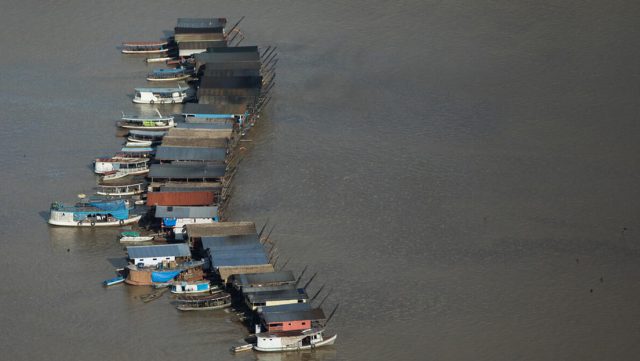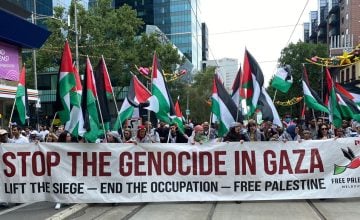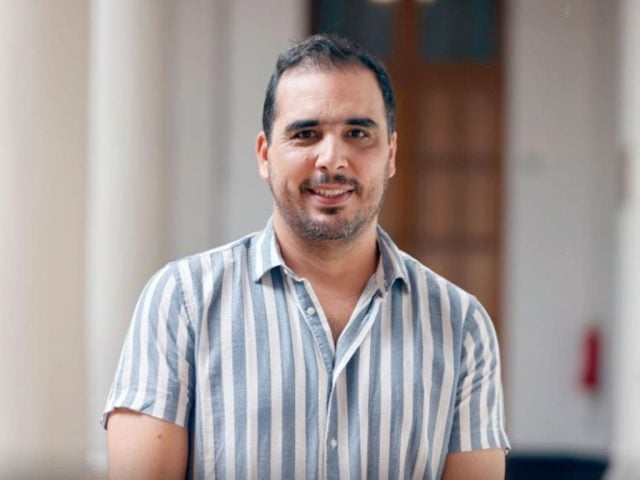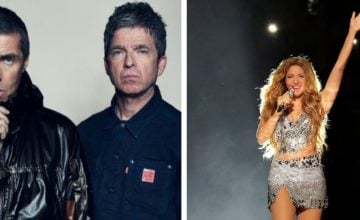It started with the rumor that there was gold in the Madeira River in Brazil, one of the main rivers in the Brazilian Amazon, and for 15 days hundreds of dredging boats with ‘garimpeiros (illegal miners)’ have invaded a traditional community, and this has set off the alarms of the environmental protection bodies.
The photographs and recordings show a shocking scene. Hundreds of boats placed in line next to each other in full activity and using machinery to extract gold from the bottom of the river in the community of Rosarinho, in the municipalities of Autazes, just over 100 kilometers from Manaus, the state capital. And they do it without an environmental license and in broad daylight.
“What we are seeing now is a situation completely out of control. We have 300 rafts placed at a point on the Madeira River in front of a traditional community ”, Danicley de Aguiar, spokesperson for Greenpeace’s Amazon campaign, told RT.
Many of the ‘garimpeiros’ come from cities such as Humaitá, in the same state, where they do this activity – according to the NGO – for many years with «the support of businessmen and politicians» who promote this activity, explains a report by Marta Miera for RT.
With 110.59 tons of gold sold for 4.9 million dollars, Brazil ranks sixth among the countries that traded this precious metal the most in 2020. Of that amount, at least 17% (equivalent to 19.12 tons ) does not have any ‘paperwork’, that is, it is extracted illegally.
Environmental damage in Brazil
The massive arrival of boats to the Rosarinho community drew the attention of the residents, who despite receiving the news of the existence of gold with emotion, were also concerned about environmental damage, such as the contamination of the river by mercury.
The work is carried out using dredgers, teams that excavate the bottom of the river in search of this precious metal. Afterwards, all the collected material is filtered and the water is returned to the river, which pollutes and impacts the environment and the communities.
Aguiar highlights that the Madeira River, which is home to at least 1,000 species of fish already identified, is the richest in the world in terms of biodiversity. It is not just any river. We are talking about a very important river for the balance of the Amazon basin (…) It is a giant that is dying with the hydroelectric plants and the ‘garimpo’ epidemic that was never contained», explains Aguiar.
After the different government agencies got into a discussion about who should take action on the matter and the Public Ministry gave a period of 30 days for the corresponding agencies to carry out some action, finally, Vice President Hamilton Mourao reported this Thursday that the Federal Police and the Navy are preparing an operation in the area.
«Lack of control»
“The authorities are taking a long time to react. 300 rafts don’t accumulate overnight. This demonstrates the fragility of control in this area. There is no justification for it to continue. In addition, it is close to the capital of the Amazon where all the institutions and security forces are located”, denounces Aguiar.
In 2017, an operation, also carried out in the Madeira River by the Brazilian Institute of the Environment and Renewable Natural Resources (Ibama) against the ‘garimpeiros’, ended with a violent response from them who attacked the facilities of the organism.
«From there, the control that was already fragile became practically non-existent and with the Bolsonaro government this situation increased exponentially», says the activist.
The beginning of the mobilizations of the ‘garimpeiros’ this November occurred when world leaders participated in the United Nations Conference on Climate Change in Glasgow (Scotland), where Brazil promised to end illegal deforestation, mainly attributed to illegal activities of mining and livestock, with control patrols.
But the reality is that with the loss of 13,235 square kilometers of rainforest, deforestation in the Brazilian Amazon this year reached its most critical point since 2006.
“The whole world is looking for an agreement to stop the climate crisis, but once again Brazil sends a bad signal. When it comes to protecting the Amazon, we need more actions and less speeches. It is necessary to break with the economy of destruction», concludes Aguiar.











